Search
Search Results
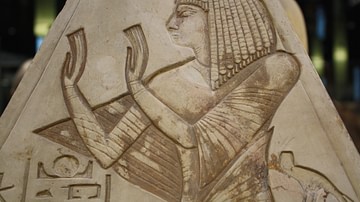
Definition
Ancient Egyptian Religion
Egyptian religion was a combination of beliefs and practices which, in the modern day, would include Egyptian mythology, science, medicine, psychiatry, magic, spiritualism, herbology, as well as the modern understanding of 'religion' as belief...
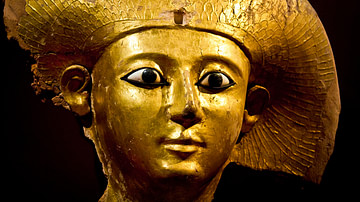
Definition
Ancient Egyptian Culture
Ancient Egyptian culture flourished between c. 6000 BCE with the rise of technology (as evidenced in the glasswork of faience) and 30 BCE with the death of Cleopatra VII, the last Ptolemaic ruler of Egypt. It is famous today for the great...
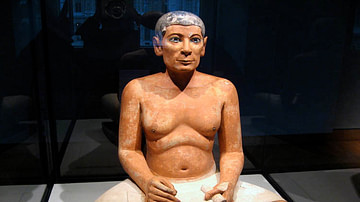
Definition
Ancient Egyptian Government
The government of ancient Egypt was a theocratic monarchy as the king ruled by a mandate from the gods, initially was seen as an intermediary between human beings and the divine, and was supposed to represent the gods' will through the laws...
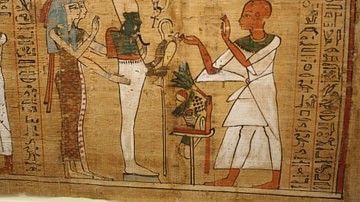
Definition
Egyptian Book of the Dead
The Egyptian Book of the Dead is a collection of spells which enable the soul of the deceased to navigate the afterlife. The famous title was given the work by western scholars; the actual title would translate as The Book of Coming Forth...
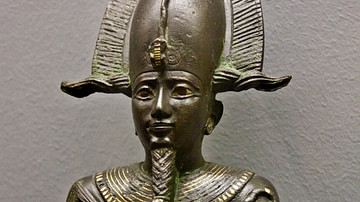
Definition
Ancient Egyptian Mythology
Egyptian mythology was the belief structure and underlying form of ancient Egyptian culture from at least c. 4000 BCE (as evidenced by burial practices and tomb paintings) to 30 BCE with the death of Cleopatra VII, the last ruler of the Ptolemaic...
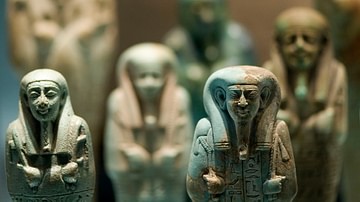
Article
Shabti Dolls: The Workforce in the Afterlife
The Egyptians believed the afterlife was a mirror-image of life on earth. When a person died their individual journey did not end but was merely translated from the earthly plane to the eternal. The soul stood in judgement in the Hall of...
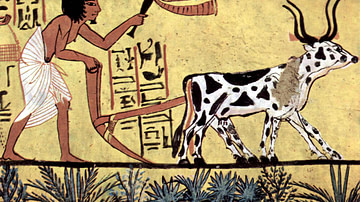
Article
Daily Life in Ancient Egypt
The popular view of life in ancient Egypt is often that it was a death-obsessed culture in which powerful pharaohs forced the people to labor at constructing pyramids and temples and, at an unspecified time, enslaved the Hebrews for this...
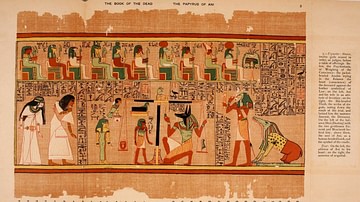
Definition
The Negative Confession
The Negative Confession (also known as The Declaration of Innocence) is a list of 42 sins which the soul of the deceased can honestly say it has never committed when it stands in judgment in the afterlife. The soul would recite these in the...
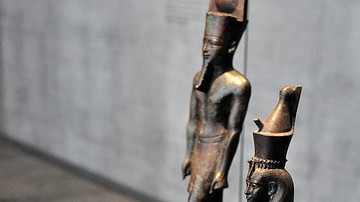
Article
Egyptian Gods - The Complete List
The gods and goddesses of Ancient Egypt were an integral part of the people's everyday lives for over 3,000 years. There were over 2,000 deities in the Egyptian pantheon, many whose names are well known - Isis, Osiris, Horus, Amun, Ra, Hathor...
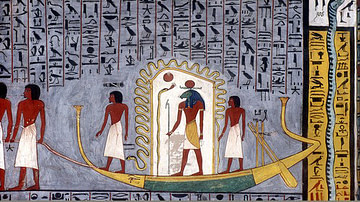
Article
The Pyramid Texts: Guide to the Afterlife
The Pyramid Texts are the oldest religious writings in the world and make up the principal funerary literature of ancient Egypt. They comprise the texts which were inscribed on the sarcophogi and walls of the pyramids at Saqqara in the 5th...